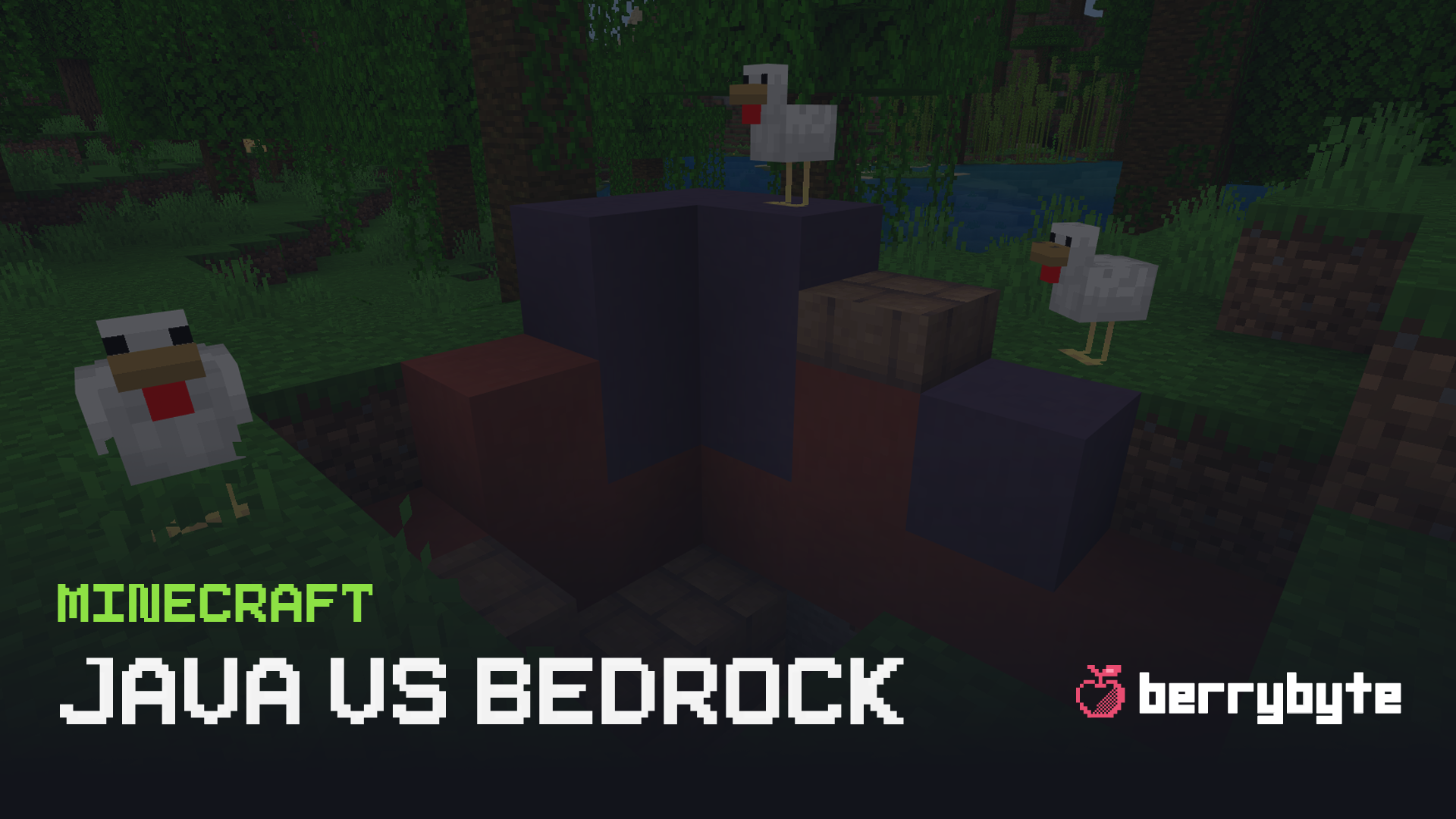Minecraft Java vs Bedrock Hosting: Which Is Best for Your Community?

If you’re looking to host a Minecraft server, one of the first decisions you'll face is whether to go with Java Edition or Bedrock Edition. Both have their strengths, quirks, and communities—but choosing the right version can make or break your multiplayer experience.
This post will walk you through the key differences between Java and Bedrock hosting, how they impact your server, and which one might be best for your players.
What’s the Difference?
At their core, Java and Bedrock are two different versions of the same game:
- Java Edition is the original version, available only on PC/Mac.
- Bedrock Edition runs on Windows 10/11, mobile, Xbox, PlayStation, and Nintendo Switch—and supports crossplay across all of them.
They’re not cross-compatible, which means players on Bedrock can’t join Java servers and vice versa (unless you use tools like GeyserMC, which we’ll touch on later).
Why Choose Java Hosting?
✅ Deep Modding & Customization
If your community loves plugins, mods, and complete control over gameplay, Java Edition is your best bet. With support for Spigot, Paper, Forge, and more, the possibilities are endless.
Whether you’re adding an economy system or creating your own minigames, Java gives you that freedom. You can even tweak performance settings using Aikar's Flags or optimize world generation with custom terrain plugins.
✅ Vibrant PC Community
Java is home to some of the most passionate Minecraft players. If your audience is primarily PC gamers, they’ll likely prefer Java’s flexibility, redstone mechanics, and modded experiences.
✅ Better Command Support
Java commands and admin tools tend to be more robust and developer-friendly. It's often easier to troubleshoot, debug, and customize gameplay using Java’s built-in console and file structure.
Why Choose Bedrock Hosting?
✅ Crossplay with Consoles and Mobile
Bedrock’s biggest win? It works everywhere. If you’re looking to build a community that spans mobile, console, and PC, Bedrock lets everyone join without mods or workarounds.
It’s especially great for younger audiences or families who want to play together across devices.
✅ Performance Efficiency
Bedrock is coded in C++, which generally makes it more lightweight and efficient. It handles large worlds and many players with less strain on CPU and memory—especially helpful if you're trying to keep server costs low.
✅ Built-In Marketplace Support
Bedrock includes support for Minecraft Marketplace content like skins, worlds, and add-ons. If your community enjoys those features, it's a plus.
What About Crossplay?
If you want Java and Bedrock players to join the same server, you can use a proxy like GeyserMC. It acts as a translator between the two versions.
We’ve written a full guide on setting up Geyser if you want to try this hybrid approach—but keep in mind that not all features work perfectly across both versions.
Hosting Differences to Consider
At BerryByte, we support both editions, and the hosting experience differs slightly between them:
| Feature | Java Edition | Bedrock Edition |
|---|---|---|
| Mods/Plugins | Full support (Spigot, Forge, etc) | Limited (Add-ons only) |
| Crossplay | Java only (unless using Geyser) | Full (console, mobile, PC) |
| Performance | More resource-heavy | More lightweight |
| Server File Access | Full FTP/File Manager | FTP access available |
| Control Panel | Custom Game Panel | Same panel experience |
Final Thoughts: Which One Should You Choose?
- Go with Java if your community is focused on PC, wants to use mods/plugins, and values flexibility.
- Choose Bedrock if you're prioritizing cross-platform play, performance, and accessibility.
Still unsure? Our Minecraft Hosting Page has more details—or hop into our Discord and ask the community directly.

